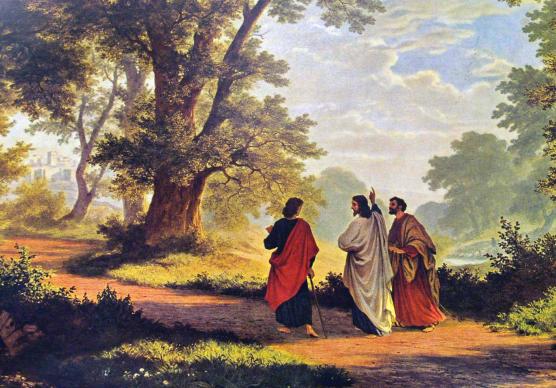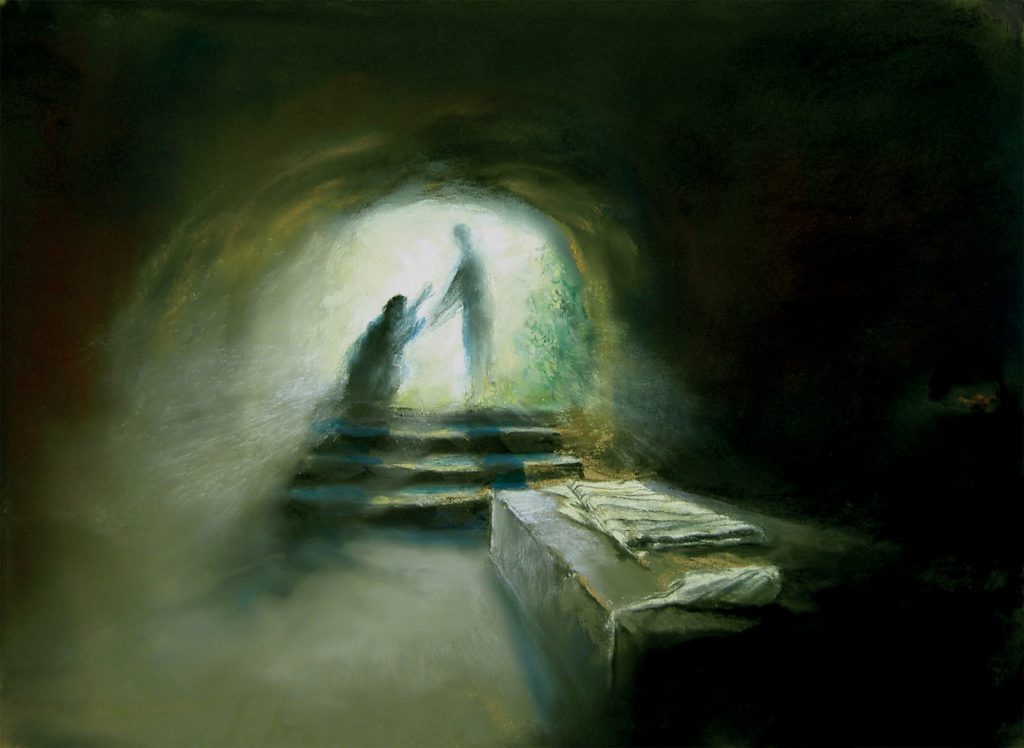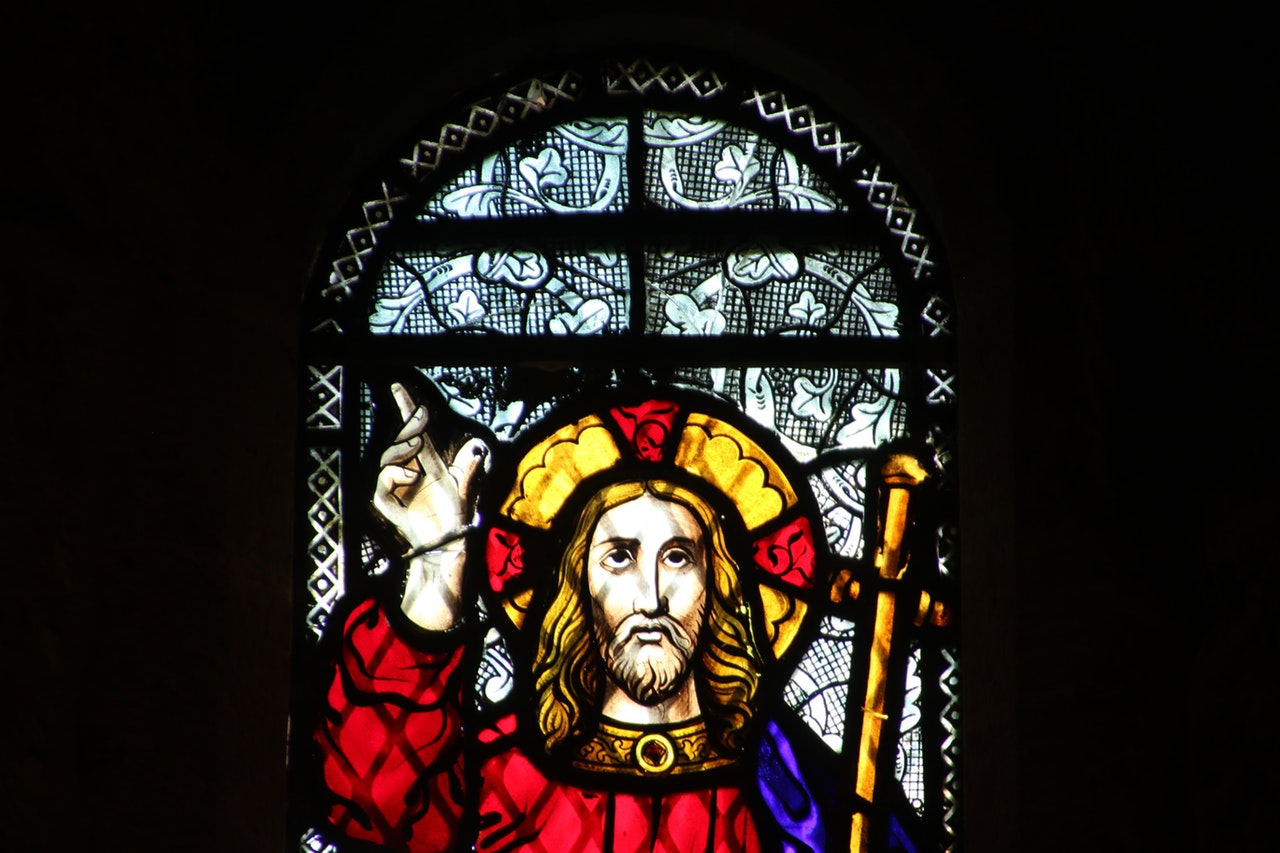Reflection for the Third Sunday of Easter. Year B. 2018
– By Fr Ugo Ikwuka
Archway, London
A Nigerian (Igbo) proverb holds that he who is waiting for his girlfriend hears even the footsteps of the spirit. In other words, he is so excitedly expectant that he goes for the door at the slightest sound.
While it is doubtful that such a proverb is still applicable today, on the contrary, the presence of the risen Jesus always brings peace and joy as is evident in this Sunday’s Gospel.

Two disciples who were moving away, in frustration, from the city (Jerusalem) to the margins (Emmaus), following the death of Jesus, had just encountered the risen Jesus on the road. He so inspired them that they made a U-turn back to Jerusalem to share their joy with the other disciples. They were still breathlessly recounting their experience when Jesus suddenly appears in their midst saying: “Peace be with you!”
Their first reaction is that of fear and alarm (as if they have seen a ghost). But it also goes with the awkwardness of facing a friend they all had betrayed and abandoned during his trials.
As Jesus re-assures them that it was him, flesh and blood, there was amazement, then joy and disbelief, in the sense that it was too good to be true, not only that he has risen but that he embraces them so kindly with the blessings of peace even after they had so terribly let him down.
Their reaction tells us something important about the Resurrection; that it is not only a great miracle or proof of Christ’s authenticity but more so a new world in which one enters with faith accompanied by wonder and joy.
It is not just about believing that Jesus has risen; it is about knowing and experiencing “the power of the resurrection” (Philippians 3:10).
Eastern Orthodox Christianity captures this profound dimension of Easter more than our Western (Roman) Christianity. For them, Christ’s resurrection is everything such that following Easter until the Ascension, to greet the other, one says: “Christ has risen!” and the other replies: “He has risen indeed!”

In our Western Christian representation of the resurrection, Jesus is pictured coming out of the tomb with the sign of the cross as a standard of victory over his external, earthly enemies such as the authorities that had chained his tomb and mounted guards to keep watch.
The seals of the tomb are seen broken, with the guards asleep. This portrays people at the scene only as passive witnesses who really are not part of the action.
The image and the scene are different in the Eastern Orthodox Christian representation. First, the scene is underground, not over-ground. Jesus does not come out, he rather descends and with extraordinary energy, he grabs Adam and Eve who were waiting in the realm of the dead. He pulls them with him to life and resurrection. Behind them is the uncountable multitude of people who awaited the redemption.
Christ’s victory is not so much over visible, but over invisible enemies, which constitute the worst kind of evil: death, darkness, anguish, the devil.
We are involved in this representation. Christ’s resurrection is also our resurrection; every man is invited to be identified with Adam, and every woman with Eve, and to stretch out their hands to allow themselves to be gripped and pulled by Christ out of the darkness of the tomb.
This is the new exodus; God has come “with a powerful arm and outstretched hand” to liberate his people from a much harsher and universal slavery than that of Egypt.
Jesus explains to the captivated disciples how what had happened to him was all clearly foretold in the Scriptures; his suffering and death were no tragedies; his resurrection was no surprise. It was all part of God’s plan. But it does not stop there.
In the name of that Jesus who suffered, died and rose, forgiveness of sin, that is, total reconciliation with God was to be proclaimed to the whole world. That’s the mission of the disciples.
In other words, they are to be agents of that peace which the risen Jesus bestowed on them; the peace that restored them to wholeness as they grappled with the guilt of their betrayal of their friend.

Through our baptism, we received the same mission and mandate. It is through us that the message of peace will be heard; the message of reconciliation, forgiveness, and healing.
The unbridled pursuit of money and goods, of power and status, the constant escape into drugs, nicotine, alcohol and the high incident of self-harming and suicides today all point to people looking for meaning, peace, and happiness in their lives.

They all need to hear Jesus speak peace to them and, like the disciples, they need to be assured of God’s love for them notwithstanding whatever mess they have made. Such is the peace that only Jesus can give.
If each of us will carry that message to just one person, many will be reached. But to do so with authority, we must radiate the joy and peace of the liberated in our own lives.





